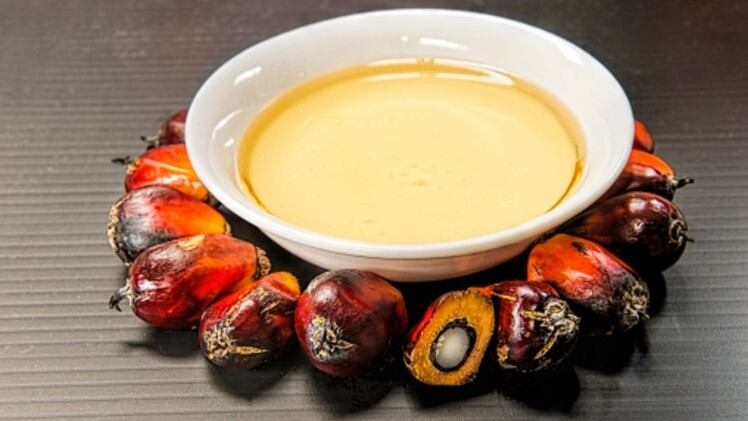Indonesian President Joko Widodo surprised the palm oil sector – and indeed the entire F&B sector – earlier this month when he announced a total export ban on all palm oil, both crude and refined/processed, out of the country to tackle local price hikes.
“The Indonesian people’s need for affordable food takes precedence over revenue and economic concerns right now – once domestic needs have been met, I will of course lift the export ban,” Widodo said via a formal statement.
“I know that Indonesia needs the taxes [and] trade [to sustain the economy], but right now meeting basic local needs is a more important priority.”
Widodo’s aim is to raise local supply and drop prices to a more affordable IDR14,000 (US$0.97) per litre of palm oil, as compared to the current sky-high rates of IDR20,000 (US$1.38) or more per litre.
Indonesian palm oil exports make up over 70% of the global palm oil supply, and experts say that this move to secure local demand is partly due to its high importance as a household commodity.
“It would be difficult for markets in the west to understand just how important the price of edible oil is to a market like Indonesia where it makes up a large component of household spending, and just how much a price hike which might seem small would affect them,” commodity and trade consultancy firm Article Three Trade Policy Director and palm oil industry expert Khalil Hegarty told FoodNavigator-Asia.
“Oil makes up a huge chunk of the household spend as it is so crucial for local cuisine, not just for the deep-frying of foods but also to make keropok (prawn crackers) which are more or less a staple snack here, and not to mention how much it affects the livelihoods of small food vendors that sell fried foods for a living as there are many of these.
“Even nearby countries like Malaysia or Singapore might have a hard time grasping just how severe the impact is for Indonesia, as the household spend on oil in these countries is comparatively much less.”
That said, not everyone in the country is pleased with Widodo’s decision – when the ban was announced, radio and news stations were inundated with angry callers from the public condemning the ban, highlighting worries about the impacts on the economy, on trade relations, and the possibility of surplus oil sitting around and going bad.
Indonesia’s major import partners such as China and the Philippines are reportedly none too pleased either – traders from New Delhi (who chose to remain anonymous due to sensitivity concerns) have expressed outrage, telling The Edge that the measure is ‘drastic’ and ‘crazy’ and they felt that they were ‘paying the price for Indonesia’s policy flip-flops’.
Malaysia’s time to shine?
Amidst this, Malaysia is looking at what could be a prime opportunity to drastically raise its market share, having had to take second place to Indonesia in terms of global exports all this while.
“Malaysia has sufficient palm oil supply to meet the needs of the United States and EU,” Minister of Plantation Industries and Commodities Datuk Zuraidah Kamaruddin said in a public statement.
“They now have no choice but to come back to palm oil as a result of the Ukraine-Russia war [and] following the reopening of our borders [in May] enabled the hiring of foreign workers, I am confident that Malaysia is ready and able to supply [even more] palm oil to global markets because our production is expected to rise.”
Malaysian Palm Oil Association CEO Nageeb Wahab added that Malaysia will be likely to benefit from Indonesia’s palm oil ban and reap higher export profits this year, likely as many markets needing palm oil urgently for their May and June operations would be turning to the country.
Not everyone shares this optimism however, with labour issues and the likely short-term effect of this ban being highlighted as reasons for Malaysia to stem its excitement over this development.
According to Malaysia’s Deputy Plantation Industries and Commodities Minister Wee Jeck Seng, labour remains an issue locally and is unlikely to be solved quite so quickly, hence it is not very likely for Malaysia to just move in and plug the gap left behind by Indonesia.
“Malaysia’s local palm oil production is still being affected by the ongoing labour shortage issue so it is unlikely that [we] will be able to fulfil the high export demand gap left by Indonesia – [on the contrary, I believe] the projected imbalance in demand and supply will see prices of palm oil and other competing oils soaring,” he said in a formal statement.
“This drastic step taken by Indonesia will definitely have a massive impact on other countries, especially major palm oil importers such as China, India and the EU.”
Similarly, Hegarty believes that it will not be quite so simple for Malaysia to simply come in and take over the open market share.
“There is potential, of course, for Malaysia to gain more business at this point, but a lot of it really depends very much on timing and existing contracts,” he said.
“Many companies in the major importing countries that used to buy from Indonesia would already have contracts in place specifiying certain criteria regarding sustainability, labour, etc., and unless their contract just so happens to be up or they are in dire need of the oil and are willing to sign a second contract just to meet short-term needs, it is unlikely that they would make such huge major changes for what is likely a short-term disruption.”
To this end, Hegarty also believes that Indonesia’s ban is just a very temporary measure to plug the gap, and not likely to last beyond a few months.
“I would be very surprised indeed if it went any longer, given it is such an important [export] for the country,” he said.
“I think it’s similar to the coal export ban that Indonesia implemented earlier this year –coal is similar to palm oil in terms of what it represents for export revenue to Indonesia, hovering around 10% to 12% of its exports, and Indonesia banned coal for electricity production due to some issues over domestic electricity production, and it seems that the idea is the same, to just ban palm oil exports for a month or so until the supply crunch is dealt with, then just get everything back on track and move forward to restart exports. But we’ll see, of course.”



